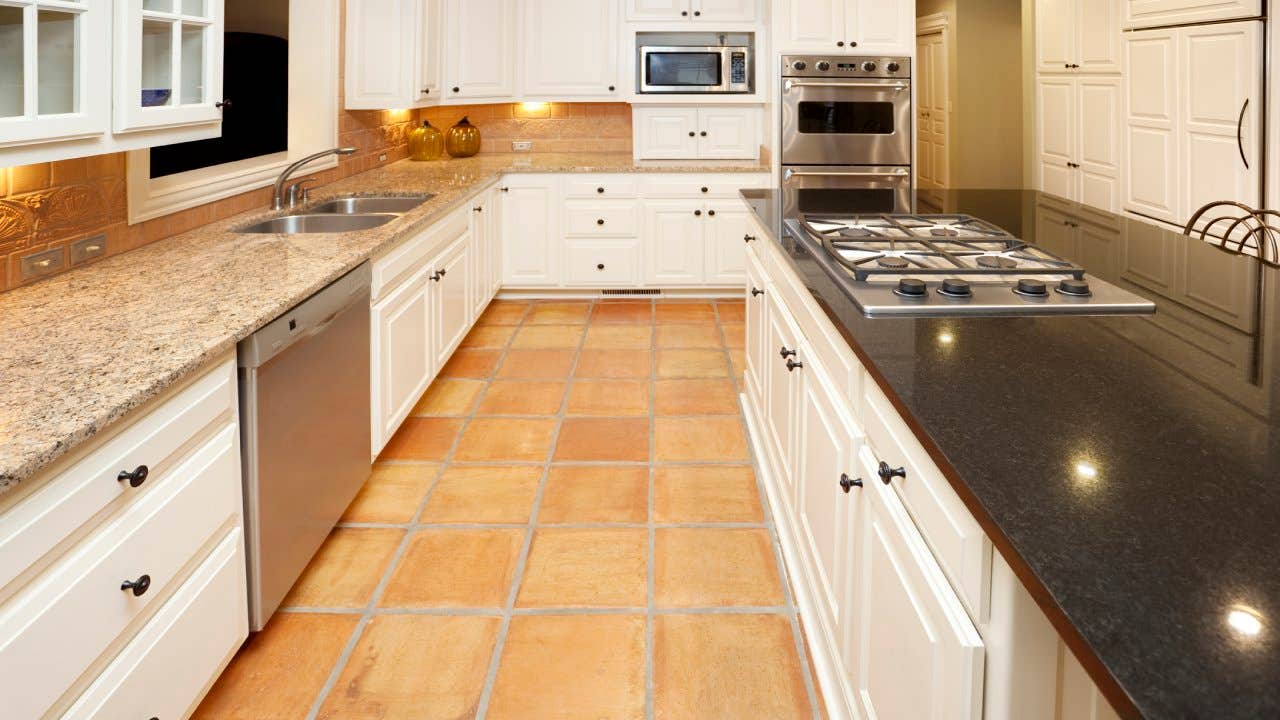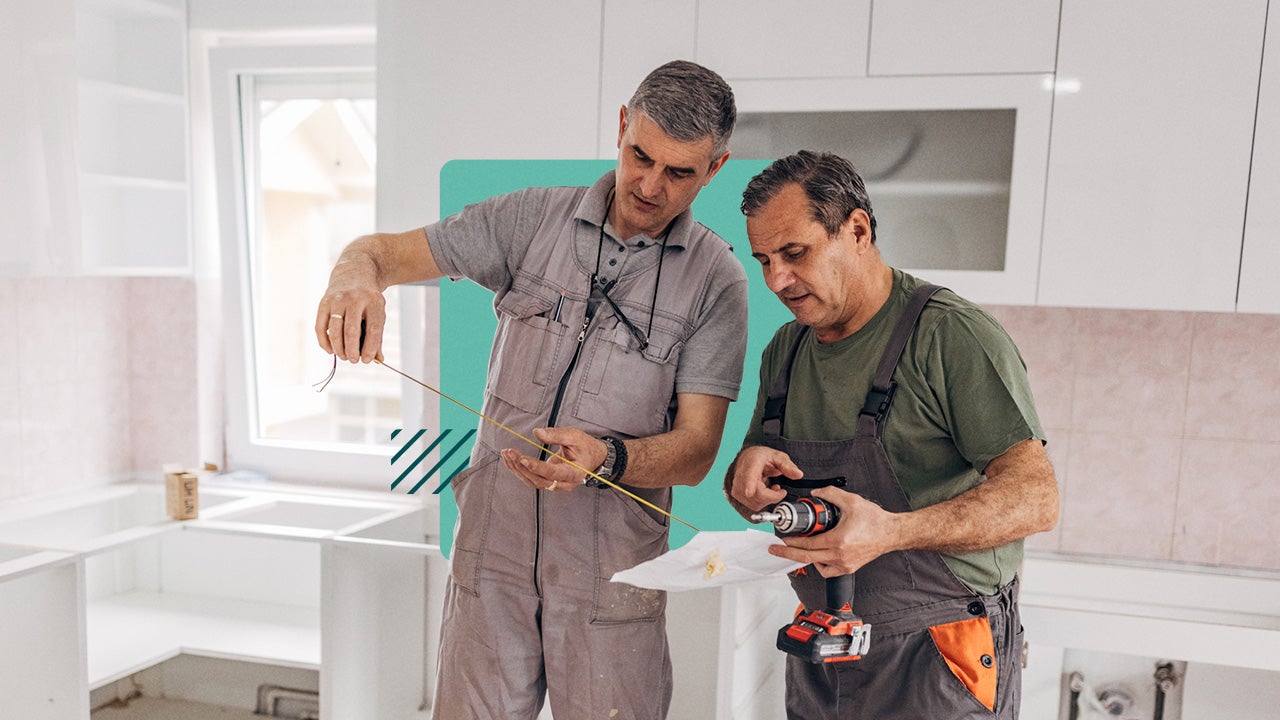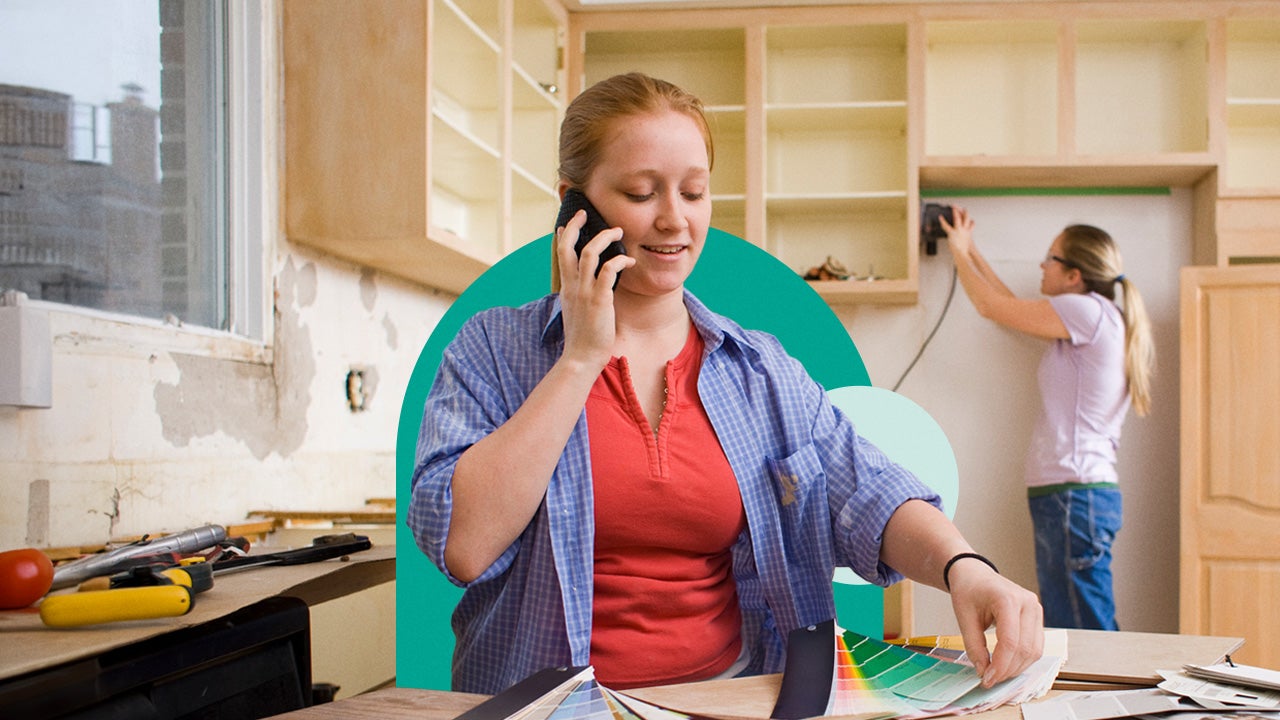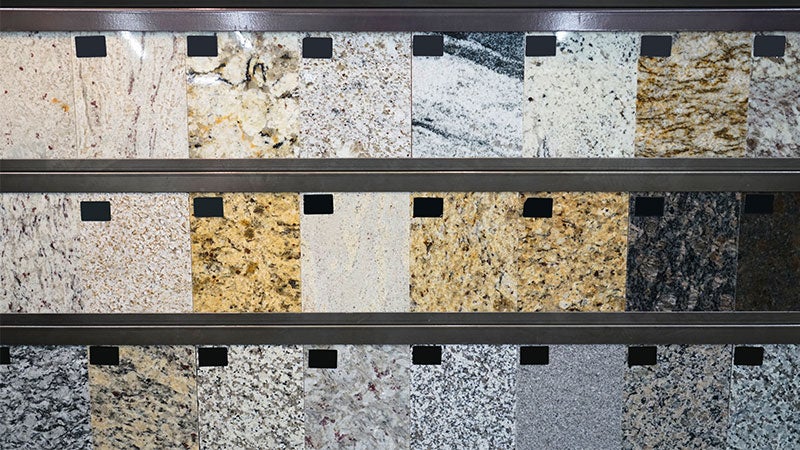How much do kitchen countertops cost?

You might think that the most important part of your kitchen is your appliances. When it comes to preparing food, you might be right. But when it comes to creating the vibe that attracts eyes and makes you want to spend time in your kitchen — then it’s all about your countertops.
New countertops are a widely popular component in a kitchen remodel. They remain the most common upgraded or updated feature, chosen by 90 percent of renovating homeowners in the 2023 U.S. Houzz Kitchen Trends Study. The report also found that the top three reasons for picking new countertop materials include look and feel (chosen by 69 percent of surveyed homeowners), durability (57 percent) and easy to clean and sanitize (38 percent).
The cost of kitchen counters can vary significantly, most typically anywhere from $15 to $70 per square foot, according to HomeAdvisor estimates. The contractor search service places the national average cost to install new countertops at $3,102, with prices ranging typically between $1,859 and $4,346.
That’s why it’s smart to research the subject before committing to a kitchen redo. Let’s go beneath the surface to see how much it costs to install or replace kitchen countertops, and what influences the prices.
Key takeaways
- The national average cost to install new countertops at $3,102, with prices ranging typically between $1,859–$4,346.
- The expected cost of installing new countertops will vary considerably, usually $15 to $70 per square foot, depending on material, labor, dimensions/layout and the kitchen’s location.
- Extras such as backsplash additions, fancy edges and corner treatments and removal of old countertops also influence the final cost.
Countertop types at a glance
| Material | Average total cost | Benefits | Drawbacks |
|---|---|---|---|
| Source:HomeAdvisor | |||
| Stainless steel | $4,000-$11,250 |
|
|
| Granite | $2,000-$4,500 |
|
|
| Concrete | $2,100-$4,000 |
|
|
| Engineered stone quartz | $1,500-$12,000 |
|
|
| Marble | $1,050-$9,650 |
|
|
| Ceramic or porcelain tile | $880-$3,000 |
|
|
| Wood | $600-$12,000 |
|
|
| Laminate | $790-$1,630 |
|
|
| Acrylic/Corian | $1,300-$5,000 |
|
|
What are the different types of countertops?
Countertops come in a variety of types at various prices. In general, the material represents about half the total cost of installing the countertop.
Quartz countertops
Quartz countertops are engineered out of quartz particles, bound together by resin and other materials. The result is a beautiful, uniform substance that can provide the aesthetic of marble veining, but at a substantially lower price — the reason quartz remains the most popular countertop material (chosen by 36 percent of homeowners polled), according to the 2023 Houzz study. Engineered stone quartz has many different color and style options available, and costs $50-$200 a square foot.
Granite countertops
Granite countertops are the second most popular option (selected by 23 percent of homeowners surveyed), according to Houzz. They have a reputation for being stylish and elegant, the type of material that often stands out in a kitchen and helps add home value. They can be quite expensive, though, costing $40 to $100 a square foot, HomeAdvisor says.
Concrete countertops
Concrete may sound unappealing, strictly for those who are into an industrial-chic look, but these polished slabs actually come in a variety of colors and appealing stains. They are heavy, heat resistant and nearly impossible to damage — provided you cover with a good sealant. They are also very expensive, priced at about $50-$150 a square foot, according to HomeAdvisor.
Marble countertops
Marble always connotes luxury, partially because no two slabs are ever the same — and partially because its upkeep is high. But some swear nothing can match its elegant veining and range of hues. Expect to pay between $40 to $100 per square foot, HomeAdvisor reports.
Tile countertops
Tile countertops provide a traditional, old-fashioned-kitchen look. Usually made of porcelain or ceramic, tiles can come in many shapes, forms and colors, making them one of the most versatile materials available — ranging in price from $1 to $100 per square foot, per HomeAdvisor. (Of the most popular tile materials, ceramic runs $1 to $15 per square foot and porcelain $3 to $28 per square foot, according to Angi). You can also install a tile countertop yourself to save on labor expenses. But they’re fragile and tough to clean.
Wood countertops
Wood countertops can provide a country feel to your kitchen and serve as chopping boards. These range in price from $20-$140 — the price can climb considerably depending on the type of hardwood, its finish and how much countertop space you have.
Laminate countertops
Laminate countertops could be the simplest and cheapest option available. You can install them yourself and have an easy-to-clean surface ready to go in your kitchen. Laminate might not provide the standout look of other options, but it gets the job done and is affordable, starting at as little as $10 a square foot and topping out at $40.
Solid surface countertops
Solid surface is a generic name for countertops made of acrylics and other artificial materials; Corian is one of the better-known and better-quality brands. Nonporous and highly durable, these countertops can mimic the look of almost any natural stone for a fraction of the cost, making them the best of both worlds for budgeteers. They run about $20 to $40 a square foot, though Corian can be as high as $75.
Metal countertops
Countertops made from stainless steel or copper are having a moment: It’s that whole industrial-chic look, plus copper is anti-bacterial. They’re durable and low maintenance, though sometimes steel can scratch. Both are pricey, running from $70 to $215 a square foot.
What is the typical cost of installing new countertops?
On average, count on setting aside $15 to $70 per square foot to replace your kitchen countertops, HomeAdvisor says. But you could pay as little as $1 per square foot to $190 or more for every square foot, depending on the countertop materials you choose.
Keep in mind: Natural stones often carry the highest price tag, while synthetic materials like laminate run cheaper — though also may produce a cheaper look.
The materials cost is only roughly half the bill. Experts estimate that 50 percent of your expense will go toward labor. Averaged-sized kitchen countertop replacements tally around $300 to $1,650 in labor, per HomeAdvisor. Materials like concrete or granite are heavy, with slabs for larger countertops weighing over 200 pounds. Installing such countertops typically requires multiple workers and sometimes specialized equipment for trimming, sanding, and sealing. Therefore, it is necessary to hire a professional for the job. On the other hand, you can DIY materials like tiles and laminates, although accurately placing tiles can be challenging.
The dimensions of the countertop are also a factor to consider, as they affect the amount of material required: the larger, the pricier. Unconventional shapes can add extra costs as well. If you need to customize the countertop by cutting it into a unique shape to fit your space, you will have to pay an additional fee for that customization.
Other cost factors to consider when installing kitchen countertops
Edge and corner treatments
The way your counter is finished at the edges and corners plays a role in its price. On average, homeowners pay $5 per linear foot, according to Home Advisor, but it can go as high as $20 or even more per linear foot. For intricate and decorative edges carved into natural stone slabs, that price tag can reach up to $60 per linear foot. There are several types of edging options available, including:
- Eased: This is the standard edge that features a square shape with a slightly rounded profile, reducing sharpness. Good for small or tight kitchens.
- Waterfall: With this style, the countertop extends from the top and covers the side of the cabinetry, reaching all the way to the floor.
- No-Drip: This edge design includes a small raised lip to prevent liquids from dripping off the countertop.
- Ogee: An ogee edge is a decorative S-curve design that adds an elegant touch. Especially nice with stone counters.
- Bevel: This edging option involves a straight 45-degree angle cut across the top edge (and sometimes the bottom edge too) of the countertop. Elegant and easy to clean.
- Bullnose or Half Bullnose: These edges are partially or completely rounded, providing a smooth, softened profile.
- Dupont: The Dupont edge features a crescent curve that leads to a 90-degree angle and a quarter-rounded edge, or a similar variation.
While the majority of countertops typically feature sharp 90-degree corners, there is an option to add a corner treatment to give them a rounded appearance. The cost of such corner treatments varies and can range, Home Advisor reports, from $55 to $135 per corner.
Backsplash additions
The backsplash completes the look of a kitchen and, of course, protects the walls. Expect to pay around $11 per square foot to $310 or more per square foot, with installation included, Home Advisor indicates. Backsplash materials include cheaper options like beadboard or ceramic, vinyl, porcelain or slate tile to more expensive choices like marble, granite, stainless steel or glass tile.
Removal/disposal of previous countertops
While many contractors will include the cost of removing your older countertops in their quote, you may be charged extra or see the expense itemized on your work order. Anticipate forking over an extra $50 to $300 to remove old materials, including countertops.
Installation location (indoor vs outdoor)
What you pay for countertops will also depend on the location of your kitchen. For example, if you plan to create an outdoor kitchen, the cost per square foot to have countertops installed could range from $10 to $100. While the labor isn’t all that different, you might be limited to more expensive materials, like natural stone or stainless steel. Most synthetic or engineered materials aren’t suitable for the outdoors.
The final word on installing countertops
Countertops are one part fashion and one part function, and you’ll want to pick a countertop that will fit your lifestyle and kitchen’s functionality. You’ll also need it to fit your budget, though. Consider the cost of the material, which will make up probably 50 percent of your final price. It could be the single biggest cost influencer in your countertop installation.
Materials in turn influence labor costs. A contractor likely will account for around 50 percent of your overall countertop installation bill. Though you can save to some extent by installing the countertop yourself, bear in mind that heavy metal or natural stone materials won’t be an option if you choose the DIY route.
You might try to keep your costs down by choosing a cheaper material, but remember, that can impact the value of your home if it ever goes on the market. A snazzy kitchen can really sell a home.
So installing quality countertops can be an investment, even though doing so kicks a kitchen remodel into the major leagues. Given the amount of time you’ll see and use them, though, it is worth it to spend on a look that you love.
You may also like

Homeowners choose minimal insurance due to rising rates. How risky is it?

How much do kitchen cabinets cost?

What does it cost to remodel a kitchen?

How much do granite countertops cost?


